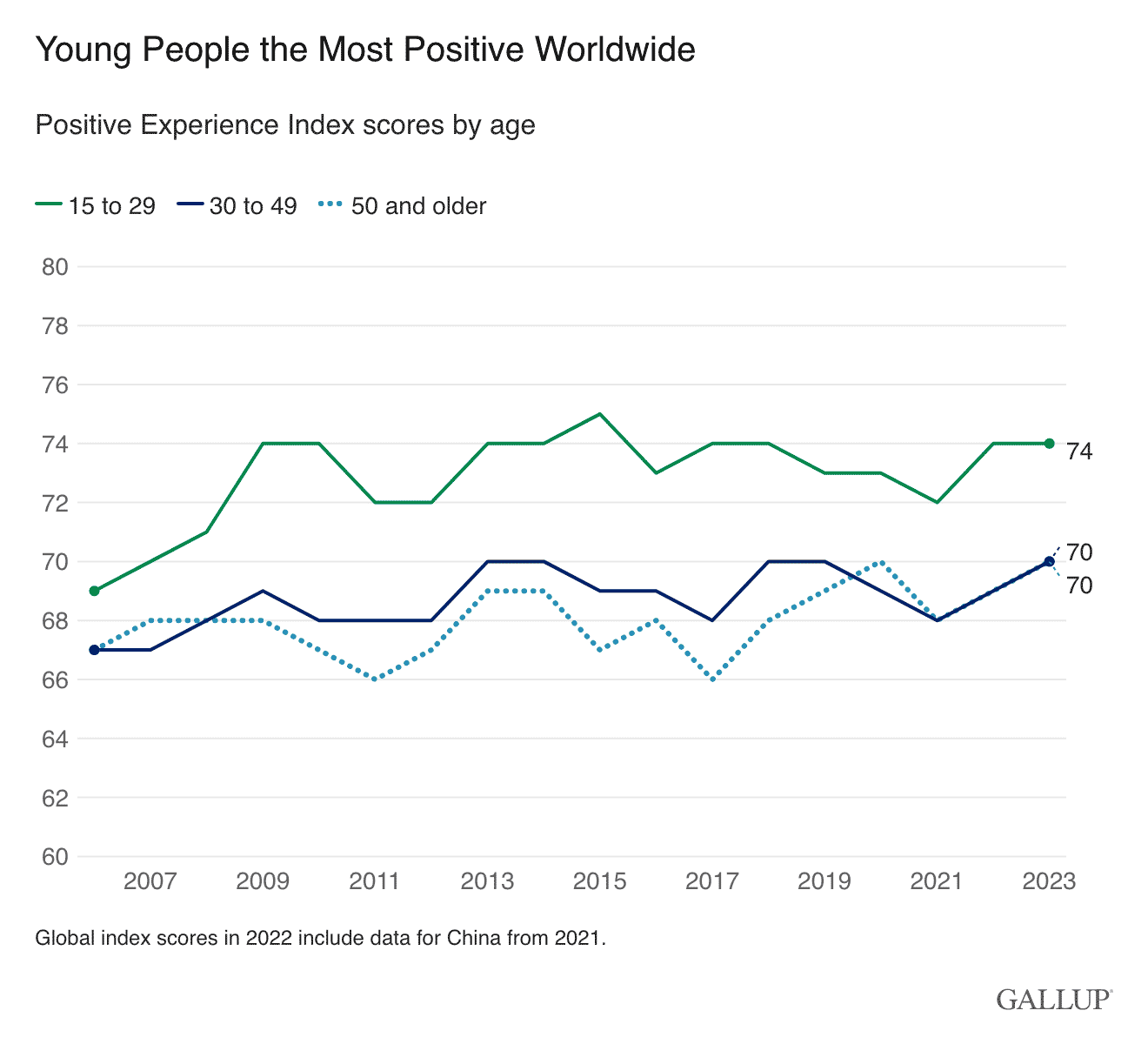Key Takeaways
Young People Are Positive
First, it’s uplifting to see that young people aged 15 to 29 are the most positive and resilient, with their scores on the Positive Experience Index reaching 74 out of 100. This resilience in our youth is a beacon of hope for the future. It shows that despite the many challenges young people face, from economic instability to environmental concerns, they remain optimistic and engaged. This optimism is crucial because it drives innovation, creativity, and a forward-looking mindset that can lead to significant positive changes in our world.
Negative Experience Falls
On the flip side, there’s good news on the negative emotions front as well. For the first time since 2014, Gallup’s Negative Experience Index has fallen to 31 out of 100. This indicates a global decline in daily experiences of stress, sadness, anger, worry, and physical pain. It’s a remarkable shift, suggesting that many initiatives aimed at improving mental health and well-being are starting to pay off. However, it’s important to note that these negative emotions still exist and are prevalent in various regions and demographics.
Stress Levels Easing
While still significant, stress levels have also eased. Countries like Northern Cyprus and Israel reported the highest stress, largely due to recent conflicts, while Kyrgyzstan reported the lowest. This variation highlights the importance of context in understanding emotional health. It’s crucial for leaders to understand these regional variations in stress to better support their teams. Providing tailored support and resources based on specific needs can make a significant difference in reducing stress and improving overall well-being.
High Levels of Loneliness
One striking finding is the high levels of loneliness in some parts of the world. In Comoros, 45% of people felt lonely a lot of the day. This loneliness correlates strongly with negative emotions like anger and sadness. As leaders, fostering community and connection can mitigate these feelings and improve overall well-being. Creating opportunities for meaningful social interactions, whether through community-building activities, team-building exercises, or simply encouraging open communication, can help alleviate loneliness and its associated negative emotions.
Seeking New Experiences
On a positive note, 54% of people globally reported learning something new or doing something interesting daily, a record high. This surge in curiosity and engagement is a testament to the human spirit’s resilience and adaptability. It shows that even in challenging times, people seek out new experiences and knowledge, which can be incredibly fulfilling and enriching. Encouraging continuous learning and personal growth within our teams can lead to higher engagement, satisfaction, and productivity.
Summary
While the world faces significant emotional challenges, there are bright spots that remind us of our collective resilience. As leaders, we must harness these insights to create supportive, engaging, and positive environments for our teams. By understanding and addressing the emotional needs of our people, we can foster a culture of well-being and purpose. Together, we can navigate these emotional landscapes and lead with purpose.
Stay connected, stay resilient, and lead with purpose.

